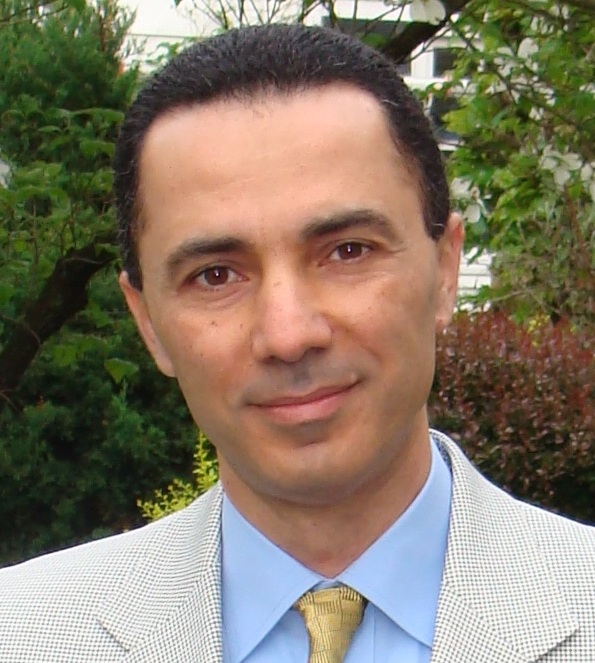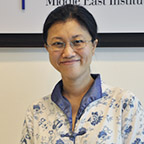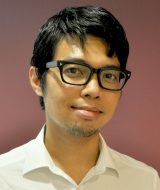- 11 Nov 2015
The Worldliness of Middle Eastern Literature
Abstract
What is good literature? If the best of what the world considers ‘fine writing’ was hitherto defined by the likes of Shakespeare and Goethe, this Western-centric canon is now complicated by the nascent discipline of world literature. Admittedly, the idea of world literature has come under some flak for entrenching national identities and subtracting power relations out of the literary marketplace. Yet, it is also the case that scholars working within the field are drawing attention to the merits of literary products that are normally overlooked, specifically from the Global South.
The Middle East is one such place, considering that only one Arabic language writer (Naguib Mahfouz) has been awarded the Nobel Prize for Literature since its inception more than a century ago. To this end, this panel will explore the allure of Middle Eastern literature as world literature in three localities within the Southern hemisphere. Prof. Wail Hassan of University of Illinois at Urbana-Champaign will look at Brazil and the Americas, Prof. Xue Qingguo of Beijing Foreign Studies University will focus on contemporary Chinese literature, and Dr. Nazry Bahrawi of the NUS Middle East Institute will consider narratives in the Malay Archipelago.
About the Speakers

Center for Global Studies
University of Illinois
Waïl S. Hassan is Professor of Comparative Literature and English and the Director of the Center for Translation Studies at the University of Illinois at Urbana-Champaign, where he is also affiliated with the Department of French and Italian; the Centers for African, Global, Latin American & Caribbean, and South Asian & Middle Eastern Studies; theLemann Institute for Brazilian Studies; and the Unit for Criticism and Interpretive Theory. A specialist in modern Arabic literature and intellectual history, he is the author of Tayeb Salih: Ideology and the Craft of Fiction (Syracuse, 2003) and Immigrant Narratives: Orientalism and Cultural Translation in Arab American and Arab British Literature (Oxford, 2011). He has co-edited Approaches to Teaching the Works of Naguib Mahfouz (MLA 2012) and several journal issues on Arabic and postcolonial studies. He is also the translator, from Arabic into English, of Abdelfattah Kilito’s Thou Shalt Not Speak My Language (Syracuse, 2008), and from Portuguese into Arabic, of Alberto Mussa’s O enigma de Qaf, published in Cairo, Egypt, as Lughz al-qāf (National Center for Translation, 2015). He is currently writing a book on Arab-Brazilian literary and cultural relations and editing The Oxford Handbook of the Arabic Novel.
Born in 1964 in Hefei, Anhui Province, Dr. Xue Qingguo is a professor and dean of the Department of Arabic Studies at Beijing Foreign Studies University. He alsoserves as Secretary-General of the China Association for Arabic Literature Studies, Deputy Director of the Chinese Arabic Language Teaching and Research Association, Executive Member of the Board of the Chinese Association of Middle East Studies.

Post Doctoral Research Fellow
Middle East Institute, NUS
Shuang WEN doctoral dissertation is entitled “Mediated Imaginations: Chinese-Arab Connections in the Late Nineteenth and Early Twentieth Centuries,” which investigates the mediating role of western and Japanese powers in the intellectual, commercial, and interpersonal connections between two major non-western societies during the high tide of global imperialism. Research for this project has taken her to China, Egypt, Syria, Taiwan, the United Kingdom, and the United States. At MEI, she will work on turning the dissertation into a book manuscript. Originally from northeastern China (the region of Manchuria), Shuang holds an MA in Chinese-English Simultaneous Interpreting and Translation from Beijing Foreign Studies University, an MA in Middle East Studies from the American University in Cairo, and most recently a PhD in History from Georgetown University. Before beginning her academic training she worked as a broadcast journalist in Hong Kong.

Research Fellow
Middle East Institute, NUS
(Joint appointment with SUTD)
Nazry Bahrawi is a cultural critic whose commentaries have appeared in the Guardian, South China Morning Post, Khaleej Times and Today newspapers, among others. He has also published refereed essays on post-secular Islam, as well as ideology and translation in Malaysia. At MEI, he is exploring critical Islamic movements in modern Nusantara and their relation to the Middle East. His research interests are the intersections between literature, culture and theology; world literature and translation; as well as comparative philosophy. He holds a PhD in Comparative Literature from the University of Warwick, and a Masters of Science in General and Comparative Literature from the University of Edinburgh.




